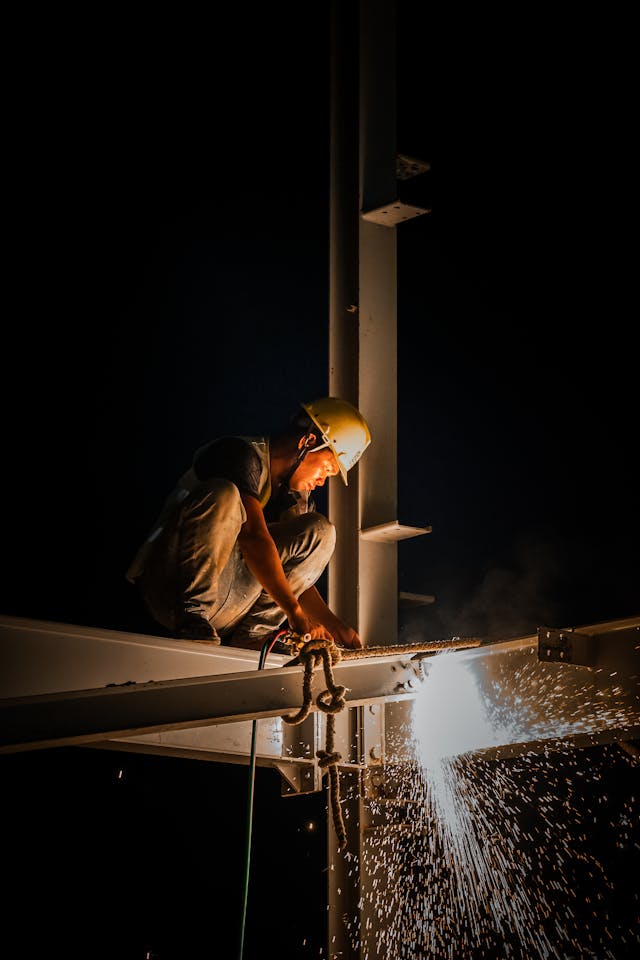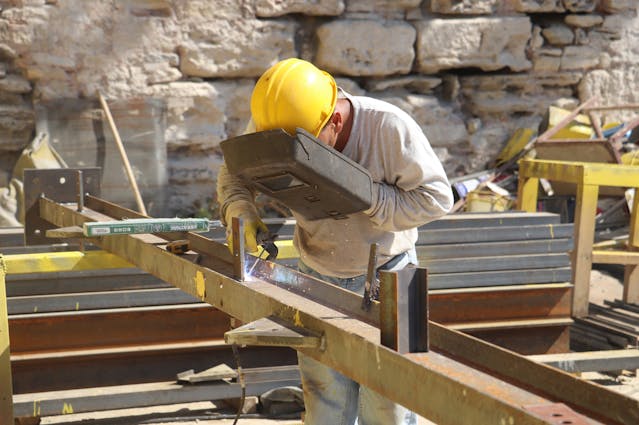Understanding Structural Welding: What Is It, and Why Is It Important?

Structural welding is a cornerstone of modern construction, providing the strength and durability necessary to support towering skyscrapers, expansive bridges, and robust industrial facilities. This essential process ensures that steel frameworks remain secure and stable, making them indispensable in the residential, commercial, and industrial sectors. For professionals seeking reliable welding services in Sydney, understanding structural welding is crucial to making informed decisions about materials, techniques, and compliance with industry standards.
What Is Structural Welding?
Structural welding joins metal components to create a solid structure capable of withstanding heavy loads and environmental stresses. Unlike other types of welding that focus on smaller-scale applications, structural welding is primarily used in large-scale construction and industrial projects. The primary goal is to form durable joints that maintain their integrity under extreme conditions, such as seismic activity, high winds, and heavy machinery operations.
How Does It Differ from Other Types of Welding?
While various welding methods exist, structural welding stands apart due to its stringent safety, strength, and precision requirements. Compared to general welding used in manufacturing and automotive applications, structural welding is performed on-site, often at great heights or in challenging environments. Additionally, structural welding in Sydney must adhere to specific regulations to ensure the longevity and safety of structures.

Why Is Structural Welding Important?
The importance of structural welding extends beyond merely joining metal components—it ensures the safety and longevity of infrastructure projects. Here’s why it plays a crucial role in construction and heavy industries:
1. Ensuring Structural Integrity
Structural welding forms the backbone of bridges, high-rise buildings, and industrial plants. High-quality welds enhance load-bearing capacity and prevent catastrophic failures that could lead to safety hazards or costly repairs.
2. Durability in Harsh Conditions
Welded structures must withstand extreme temperatures, corrosion, and physical stress. Proper welding techniques and materials ensure longevity, reducing maintenance costs and extending the lifespan of buildings and infrastructure.
3. Compliance with Safety Standards
In Australia, structural welding must meet the Australian standard for structural steel welding to ensure safety and quality. Compliance with these regulations protects workers, residents, and businesses relying on welded structures.
4. Versatility Across Industries
Whether for commercial buildings or mining operations, structural welding is an essential service across various industries. Welding Sydney projects require skilled professionals to ensure precision and compliance with industry regulations.
5. Cost-Effectiveness in Large-Scale Projects
Proper structural welding techniques can significantly reduce long-term costs by minimising repairs and maintenance. When done correctly, welded structures last for decades without requiring major refurbishments, making them a cost-effective solution for builders and engineers.
Key Welding Techniques in Structural Applications
Structural welding employs several techniques, each suited to specific applications. The choice of method depends on factors such as material type, environmental conditions, and project requirements.
1. Shielded Metal Arc Welding (SMAW)
SMAW is commonly known as stick welding. It is widely used in structural applications due to its versatility and ability to function outdoors. This method is ideal for welding thick steel components in construction projects.
2. Gas Metal Arc Welding (GMAW/MIG)
MIG welding is popular for its efficiency and clean finish. It’s often used in shop fabrication, allowing for faster production of welded components before they are transported to construction sites.
3. Flux-Cored Arc Welding (FCAW)
FCAW is an excellent choice for outdoor projects, offering deep penetration and high deposition rates. It is commonly used in shipbuilding, bridge construction, and heavy equipment manufacturing.
4. Gas Tungsten Arc Welding (GTAW/TIG)
TIG welding provides precise control and superior quality but requires a skilled welder. It is often used for specialised applications requiring fine detail and a high-strength weld.
5. Submerged Arc Welding (SAW)
SAW is commonly used in large-scale industrial applications. It offers deep penetration and high efficiency, making it an excellent choice for welding thick steel plates and beams used in structural frameworks.

Industry Safety Standards and Regulations
Compliance with safety standards is non-negotiable in structural welding. Welding services in Sydney must adhere to Australian regulatory requirements to ensure the highest levels of safety and performance.
Australian Standards for Structural Welding
The Australian standard for structural steel welding sets stringent guidelines for welding procedures, welder qualifications, and inspection requirements. These standards ensure that welded structures maintain integrity under stress and environmental factors.
Safety Measures in Structural Welding
- Personal Protective Equipment (PPE): Welders must wear fire-resistant clothing, gloves, helmets with auto-darkening lenses, and respiratory protection to prevent exposure to fumes.
- Worksite Safety Protocols: Welding at heights requires proper harnesses and scaffolding to protect workers from falls.
- Weld Inspection and Testing: Non-destructive testing (NDT) methods such as ultrasonic and radiographic testing ensure weld quality and detect potential flaws.
- Fire Prevention Measures: Given the high temperatures involved in welding, it is crucial to have fire extinguishers, spark containment shields, and proper ventilation in place to prevent fire hazards.
Understanding Structural Welding Sydney Cost
The cost of structural welding in Sydney varies based on project complexity, materials used, and compliance requirements. Factors influencing pricing include:
- Labour Costs: Skilled welders with certifications demand higher rates due to their expertise and adherence to industry standards.
- Material Selection: High-strength alloys and corrosion-resistant coatings may increase costs but improve durability.
- Inspection and Compliance Fees: Ensuring compliance with Australian standards involves additional costs for quality checks and certification processes.
- Project Scope and Location: Remote or complex projects may require additional resources and specialized equipment, which can impact overall costs.
Choosing the Right Structural Welding Partner
Partnering with a trusted provider is essential for businesses and contractors requiring expert structural welding services. Cedar Steel offers professional welding services in Sydney, delivering high-quality structural welding solutions for residential, commercial, and industrial projects.
Why Choose Cedar Steel?
- Experienced Professionals: Our skilled welders adhere to the highest industry standards.
- Compliance with Regulations: We ensure all welding work meets the latest Australian standards.
- Tailored Solutions: We provide customised solutions for diverse structural welding needs, from small-scale residential projects to large industrial frameworks.
- Advanced Equipment: We utilise state-of-the-art welding machinery and cutting-edge techniques to ensure precise and efficient welds.

Final Thoughts
Structural welding is the foundation of safe and durable construction. Understanding its techniques, importance, and compliance requirements is crucial for engineers, builders, and project managers. Whether you’re looking for welding in Sydney for a new construction project or maintenance work, choosing a reliable provider ensures quality and safety.
Learn more about Cedar Steel’s structural welding services here. For inquiries, get in touch with Cedar Steel today!

